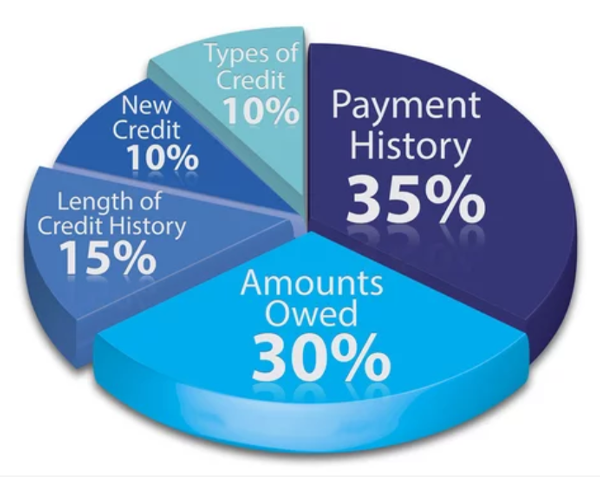A credit score is a quantitative value used to predict the likelihood that someone will pay back loans for credit cards, mortgages, or other types of debt. A higher credit score tends to be associated with a healthier financial profile. So the higher your credit rating, the more likely that lenders and creditors will perceive you to be credit-worthy.
Credit plays an important role in many aspects of your financial journey - whether your trying to get a loan, open a bank account, or even get a job. In this article, we'll help you understand how to calculate your credit score. Let's explore.
Payment history is the most important factor with the highest impact on your credit score. Your ability to make payments on time is hyper-critical. Your reported history will show how reliable you are in making payments on time, it will show your missed payments, how often you have missed, how often you are late, how far behind you are, and whether you have made payments that are over 30 days late. Having a long history of paying bills on time will work in your favor, decrease your risk profile and work to increase your credit score.
Another important factor that goes into your credit score is the amount you owe (may include personal loans, student loans, auto loans, or mortgages etc.).
The larger the amount you owe, the greater your total debt. Of significant importance to the credit scoring models is your rate of credit utilization. Credit utilization is a measurement of your outstanding credit balance as a ratio of your credit limit. For instance, if you have a $5,000 credit limit and your credit card balance is $500, then your credit utilization ratio is 10%.
Here's how to calculate your credit utilization:
(Credit balance / Credit Limit) multiply by 100 = Credit Utilization
Keep your utilization percentage low, avoiding high balances (in proportion to the total amount of credit), and avoid "maxing-out" your accounts. Maintaining a lower credit utilization ratio will serve in helping to increase your credit score.
All credit scoring models consider the length of time you have had the same credit card, loans, or accounts (the actual age of each account). Having a longer credit history demonstrates a stronger ability to make payments on time. If you have many accounts, your credit score is normally determined by the average age of all of them. Consider keeping your credit accounts open to leverage this factor in your favor.
If you have recently opened multiple accounts, or have applied for credit on many accounts in a year or shorter period of time, it may signal higher risk to the credit scoring models, and this may negatively impact your score. While new accounts can signal that you are able to manage your finances, it may also impact the cumulative length of your credit history.
If the credit accounts that you have span different types of credit, this may positively signal that you can manage different credit types, such as credit cards, personal loans and mortgages. A healthy balance is recommended and that may help the health of your score. However, too many accounts may lead to a decreased credit score, as it increases risk exposure for the lender/creditor.

Interested in learning more? Contact us for a free, no-obligation private consultation. We are dedicated to you and are here to help.
We hope this article was of value to you. For more great tips, bookmark our site and for all your mortgage needs, visit Team Tina at TMFFMS.